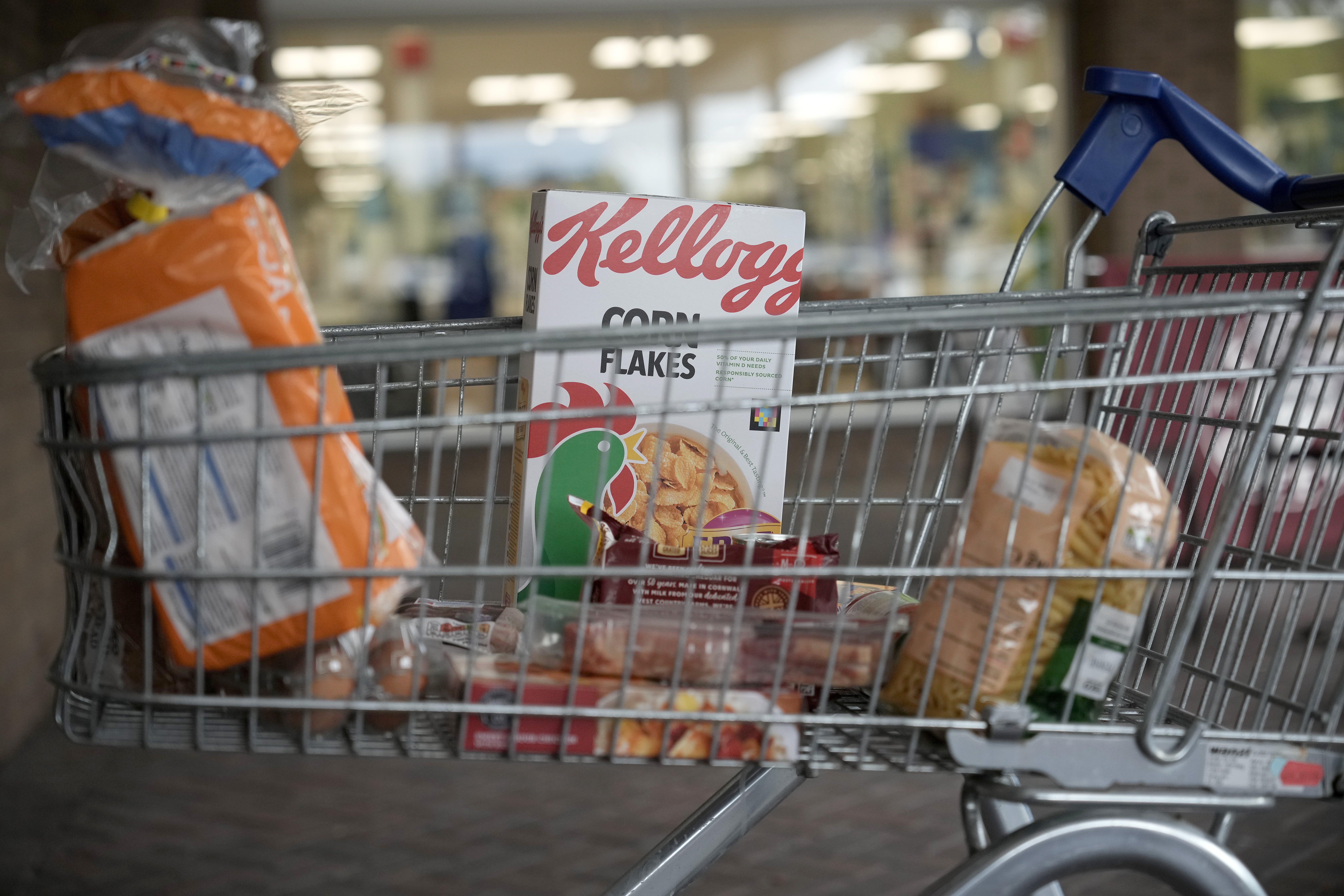Inflation soars to highest rate in four decades as cost of living crisis bites
Inflation is expected to peak later this year at 13.3 per cent, the Bank of England forecasts

Your support helps us to tell the story
From reproductive rights to climate change to Big Tech, The Independent is on the ground when the story is developing. Whether it's investigating the financials of Elon Musk's pro-Trump PAC or producing our latest documentary, 'The A Word', which shines a light on the American women fighting for reproductive rights, we know how important it is to parse out the facts from the messaging.
At such a critical moment in US history, we need reporters on the ground. Your donation allows us to keep sending journalists to speak to both sides of the story.
The Independent is trusted by Americans across the entire political spectrum. And unlike many other quality news outlets, we choose not to lock Americans out of our reporting and analysis with paywalls. We believe quality journalism should be available to everyone, paid for by those who can afford it.
Your support makes all the difference.Britain's rate of inflation has surged to a new 40-year high, heaping more pressure on households struggling with the cost of living crisis.
The Consumer Prices Index (CPI) rose to 10.1 per cent in the 12 months to July, up from 9.4 per cent in June and remaining at the highest level since 1982, the Office for National Statistics (ONS) said.
July's inflation rate is higher than the 9.8 per cent figure expected by most economists and represents a further squeeze on people's pockets.
Inflation is expected to peak later this year at 13.3 per cent and will push the UK into a recession, according to the Bank of England (BoE).
ONS chief economist Grant Fitzner said a wide range of price rises such as in dairy and meat products drove inflation up this month.
“Price rises in other staple items, such as pet food, toilet rolls, toothbrushes and deodorants also pushed up inflation in July,” Mr Fitzner said.
“Driven by higher demand, the price for package holidays rose, after falling at the same time last year, while air fares also increased.
“The cost of both raw materials and goods leaving factories continued to rise, driven by the price of metals and food respectively.”
The rise will come as the energy price cap - which regulates what more than 20 million households pay for their gas and electricity - rises in October. The cap is set to hit around £3,635 according to the latest predictions. It is an 84 per cent rise from today's already record high price cap.
Responding to the announcement, chancellor Nadhim Zahawi said getting inflation under control is his “top priority.”
“I understand that times are tough, and people are worried about increases in prices that countries around the world are facing,” Mr Zahawi said.
“Although there are no easy solutions, we are helping where we can through a £37 billion support package, with further payments for those on the lowest incomes, pensioners and the disabled, and £400 off energy bills for everyone in the coming months.”

Samuel Tombs, chief UK economist at Pantheon Macroeconomics, said that motor fuel prices rose by 3 per cent month-on-month in July, which will help push up inflation.
Experts think, however, that the measure could dip in August before soaring again in September and October.
“Looking ahead, CPI inflation probably eased in August largely due to a 7 per cent or so month-to-month fall in motor fuel prices,” Mr Tombs said.
He added that retailers are expected to slow the pace of their price rises soon, but only for inflation to jump again in October following the energy price cap increase.
“The relief for households will be short-lived, due to the impending 80 per cent or so jump in Ofgem's price cap. This could push up inflation by nearly four percentage points in October,” Mr Tombs said.
Chris Page, who chairs pressure group Railfuture, said: “The government claims that the fare rise will be below inflation, but the devil will be in the detail.
“They won't say what the increase will be, or which fares it will apply to.
“If the government was serious about tackling the cost-of-living crisis it would make rail travel much more affordable and make it easier for people to use cars and planes less.”
Economist David Blanchflower, an external member of the BoE’s interest rate-setting Monetary Policy Committee from June 2006 to June 2009, said the public were “going to need” greater government assistance.
He told the BBC: “What happened in 2008, what happened in 2020 (is) basically the Treasury stepped in and started to help people in a variety of ways, through the health service, through childcare, through all kinds of things. And that's what we're going to need.”



Join our commenting forum
Join thought-provoking conversations, follow other Independent readers and see their replies
Comments